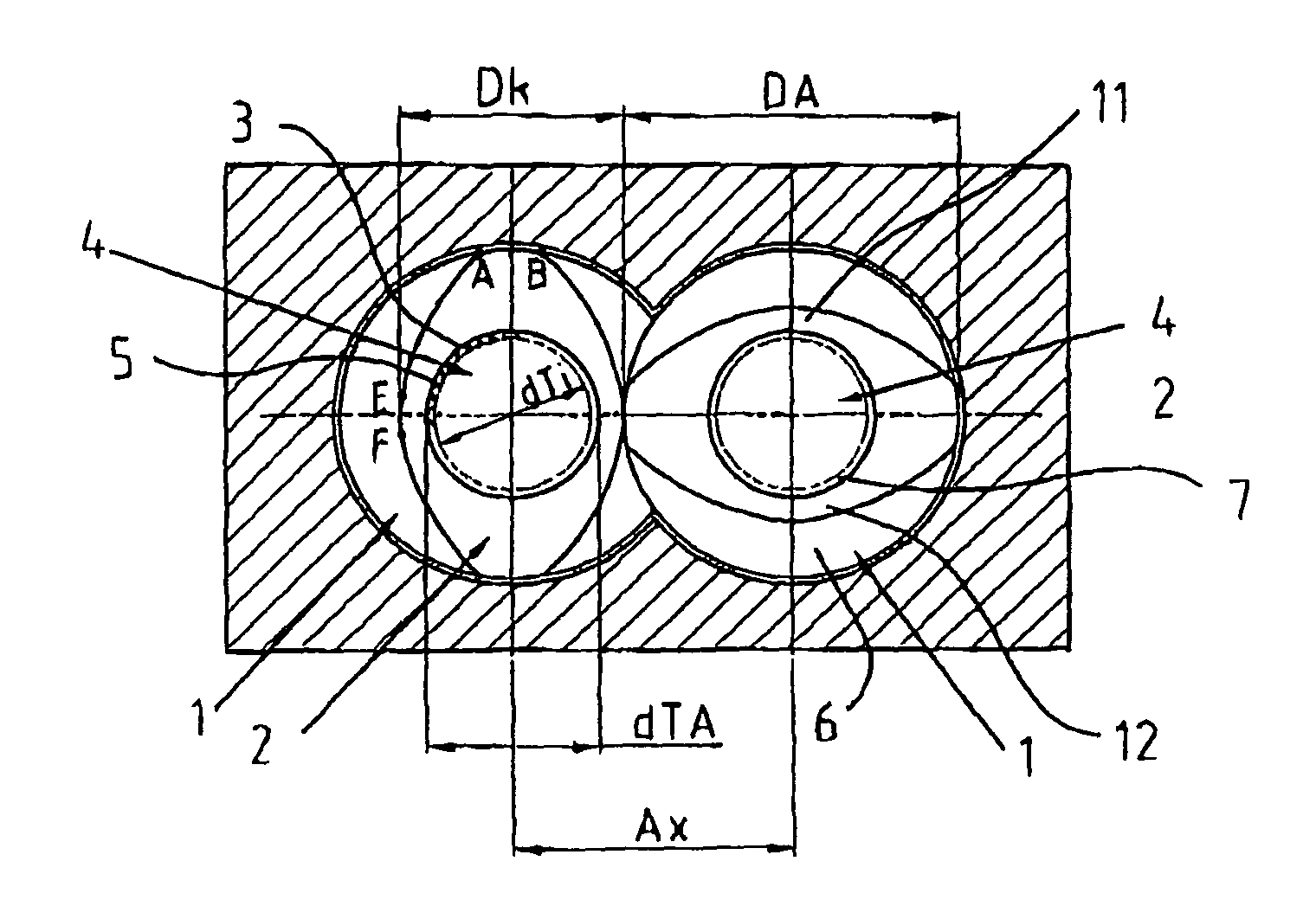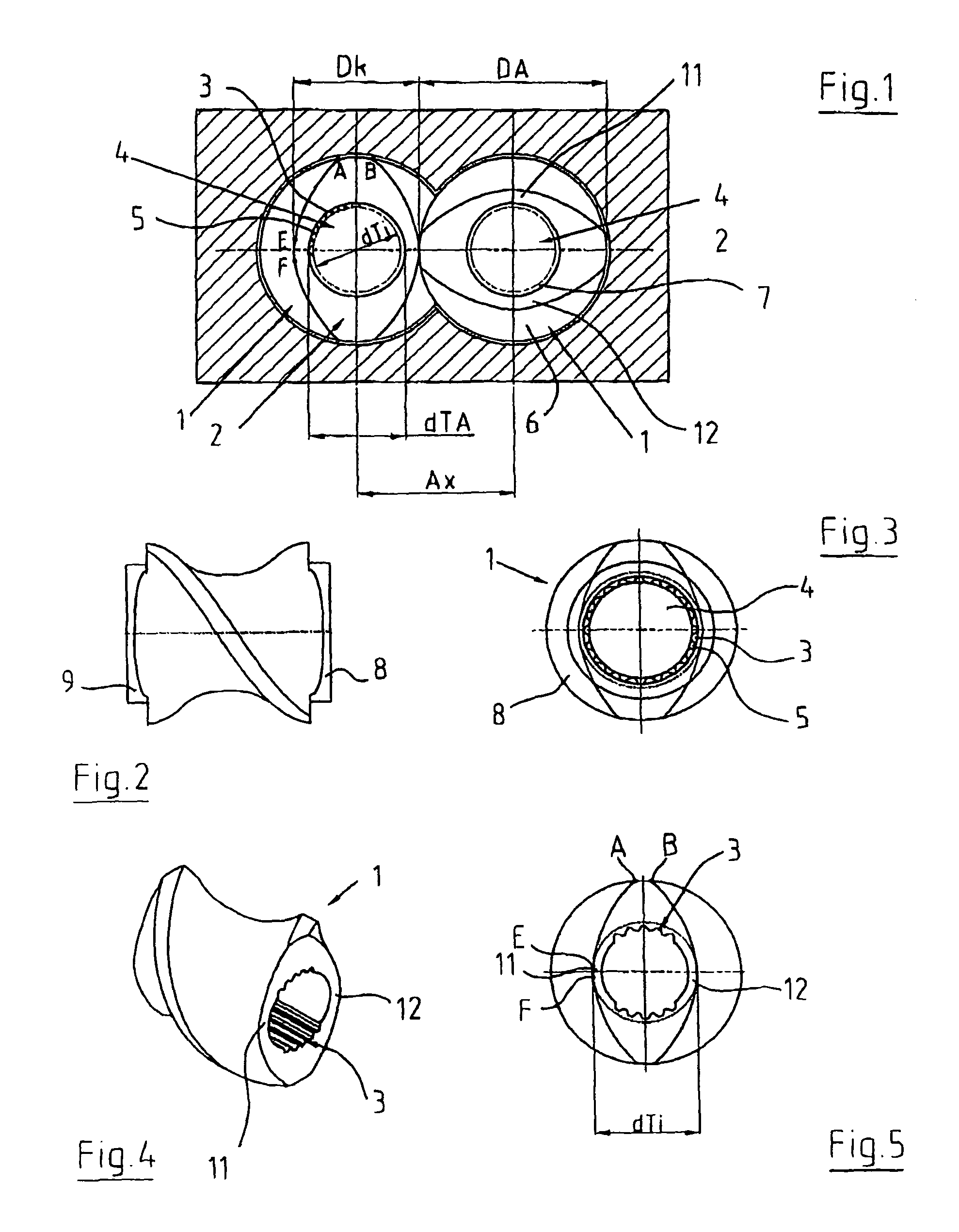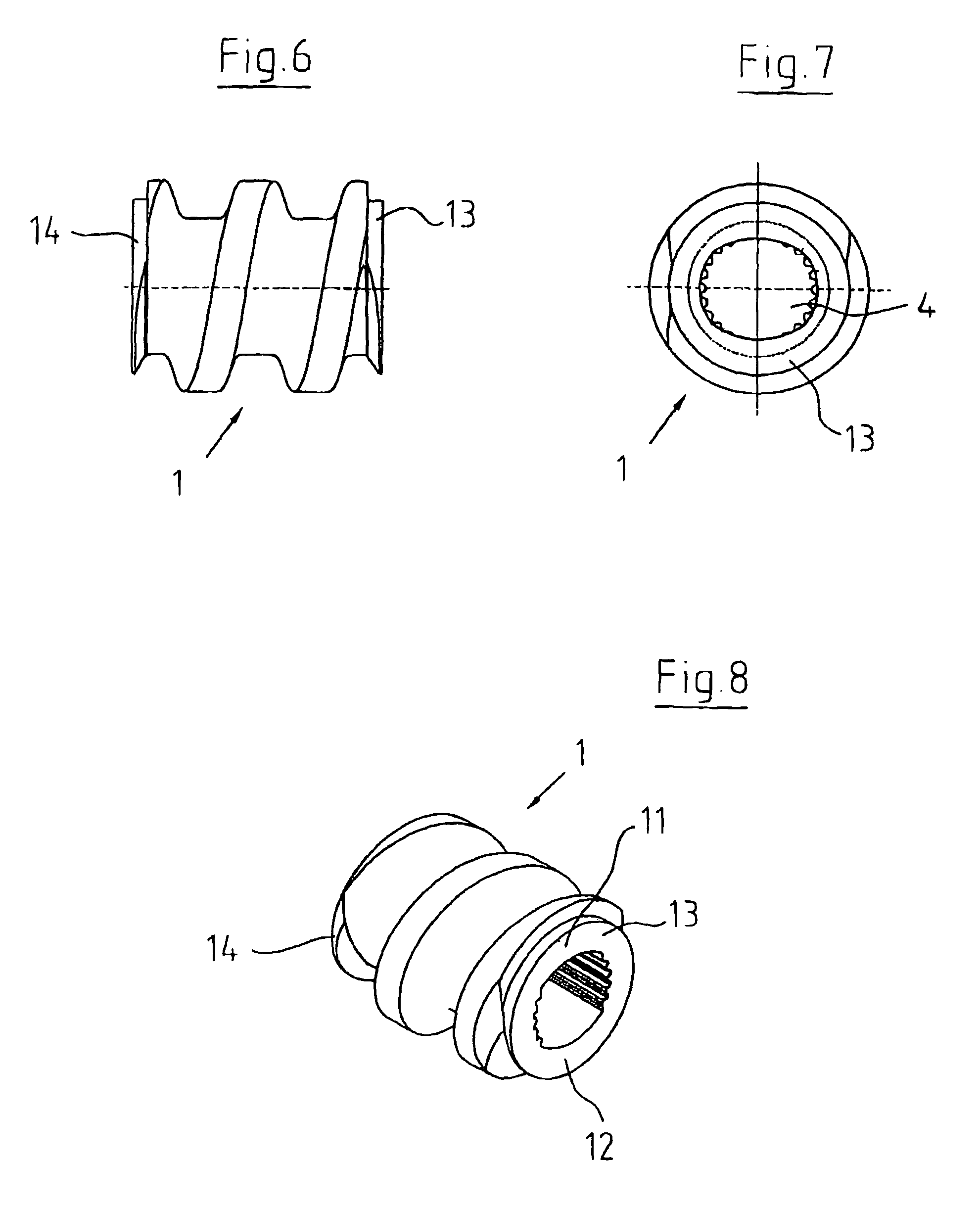Extruder
a technology of extruder and kneading head, which is applied in the direction of mixing/kneading with horizontally mounted tools, mechanical equipment, couplings, etc., to achieve the effect of increasing the volume yield
- Summary
- Abstract
- Description
- Claims
- Application Information
AI Technical Summary
Benefits of technology
Problems solved by technology
Method used
Image
Examples
Embodiment Construction
[0031]As shown in FIG. 1, two intermeshing slip-on elements 1 have a transverse or cross-sectional profile area 2 which is limited by circular arcs A-B, E-F and A-E. The circular arc A-B has a diameter corresponding to the maximum slip-on element diameter DA, the circular arc E-F a diameter corresponding to the slip-on element core diameter Dk, and the circular arc A-E a diameter whose radius corresponds at most to the center distance Ax of the two combined slip-on elements 1.
[0032]The slip-on element 1 has an internal toothing 3 engaged by the support shaft 4 with its external toothing 5. The slip-on element thus has a free conveying surface 6 that is determined by the diameter DA and the flight depth. Further, the surface proportion 7 for the shaft-to-hub connection is needed, which results from dTA and dTi.
[0033]According to FIGS. 2 and 3, the slip-on element 1 configured as a screw element likewise has an internal toothing 3 engaged by the support shaft 4 all around with its ext...
PUM
| Property | Measurement | Unit |
|---|---|---|
| diameter | aaaaa | aaaaa |
| DA | aaaaa | aaaaa |
| areas | aaaaa | aaaaa |
Abstract
Description
Claims
Application Information
 Login to View More
Login to View More - R&D
- Intellectual Property
- Life Sciences
- Materials
- Tech Scout
- Unparalleled Data Quality
- Higher Quality Content
- 60% Fewer Hallucinations
Browse by: Latest US Patents, China's latest patents, Technical Efficacy Thesaurus, Application Domain, Technology Topic, Popular Technical Reports.
© 2025 PatSnap. All rights reserved.Legal|Privacy policy|Modern Slavery Act Transparency Statement|Sitemap|About US| Contact US: help@patsnap.com



